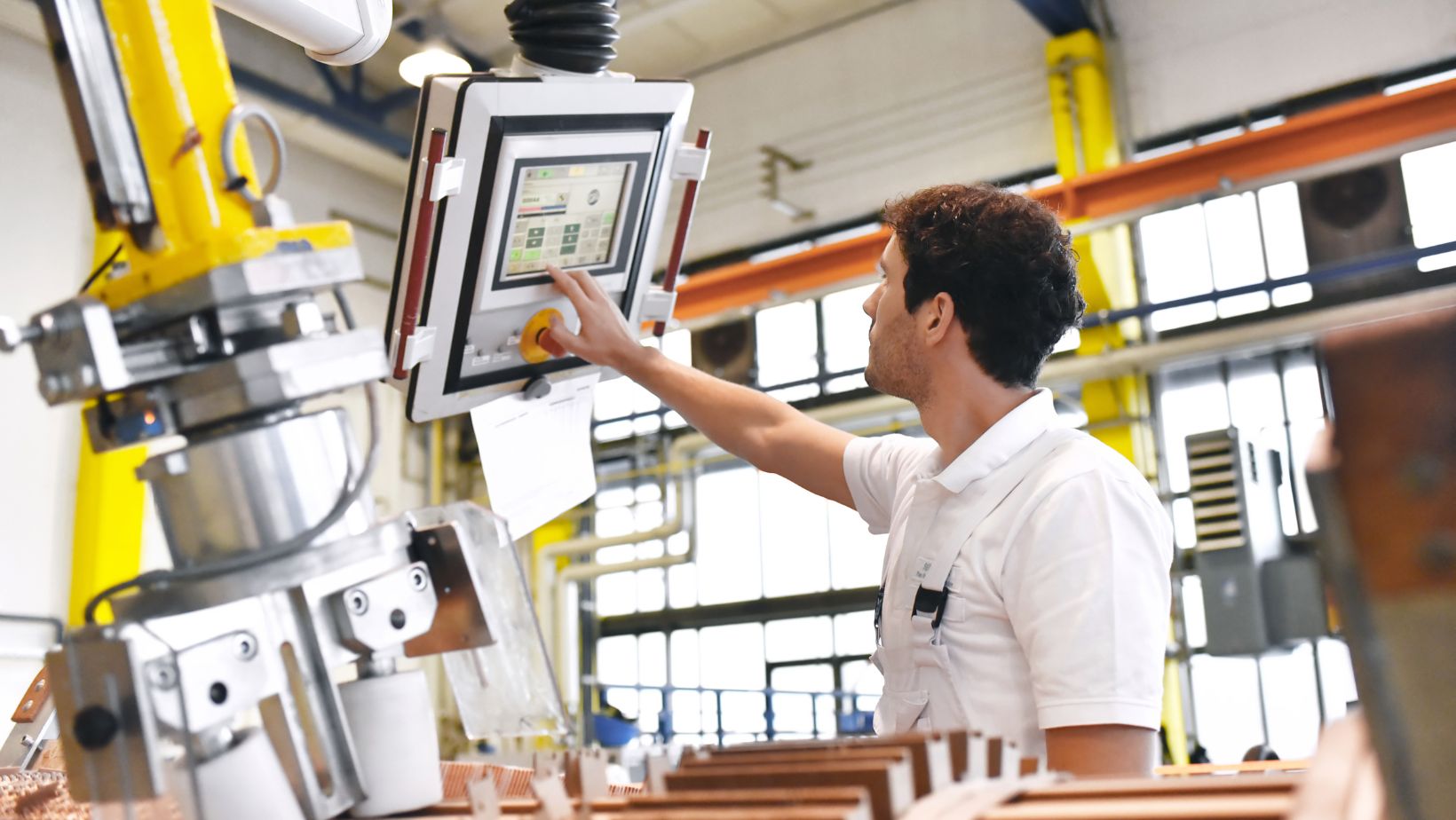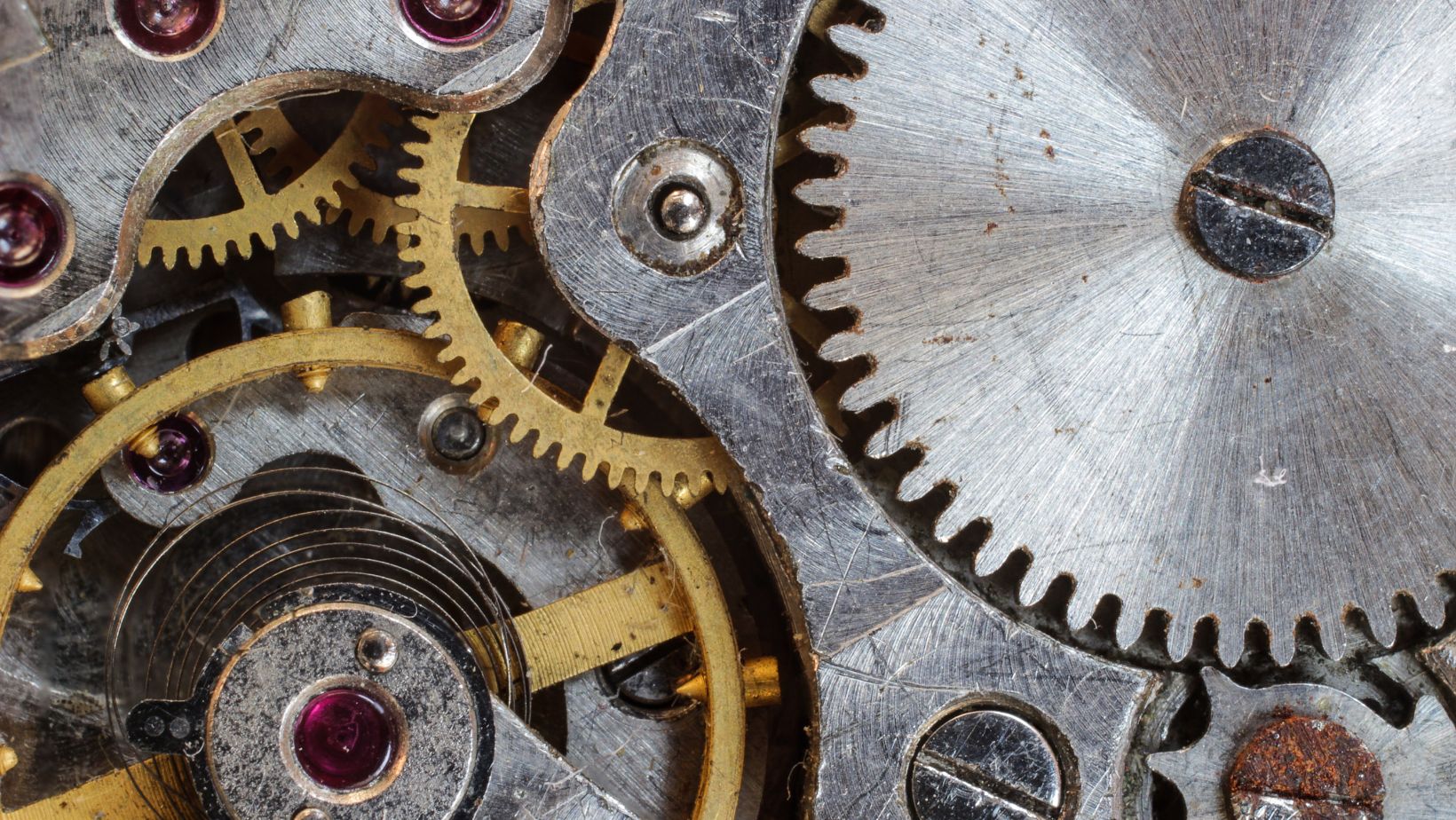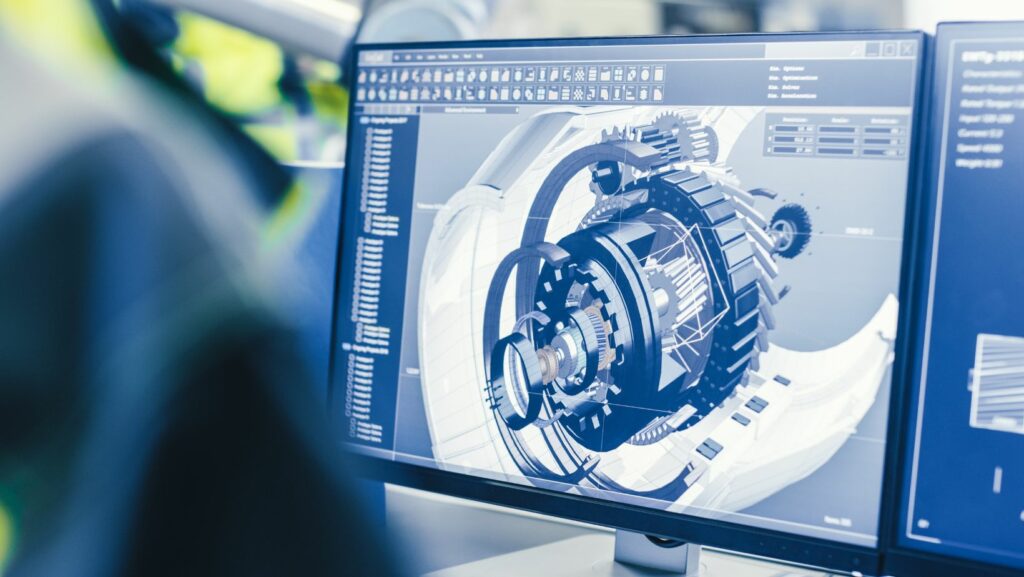Key Takeaways
- Definition and Scope: Mechanical technology involves the design and operation of machinery, integrating physics and engineering to solve practical problems across various industries.
- Key Components: Major elements include machines (e.g., lathes and robotic arms), mechanical systems (assembly lines), tools (hand and power tools), and instruments (gauges and sensors).
- Wide Applications: This technology significantly impacts manufacturing, transportation, and healthcare, improving efficiency, productivity, and safety in processes.
- Automation and Smart Technologies: The rise of automation and smart technologies, including AI and IoT, enhances operational efficiency while reducing human intervention in processes.
- Benefits: Advantages of mechanical technology include increased efficiency, enhanced precision, improved safety, cost reduction, and greater resource efficiency, contributing to innovation across sectors.
- Challenges and Limitations: Despite its benefits, mechanical technology faces challenges such as high initial costs, skill shortages, and maintenance requirements, emphasizing the need for strategic planning in implementation.
Mechanical technology has transformed the way people live and work, driving innovation across various industries. From the simple lever to complex robotics, these advancements have made tasks more efficient and accessible. Understanding the different examples of mechanical technology not only highlights human ingenuity but also showcases the impact on everyday life.
In this exploration, readers will discover a range of mechanical technologies that have shaped modern society. These examples illustrate how machines and tools have evolved, enhancing productivity and improving safety. Whether it’s in manufacturing, transportation, or healthcare, the influence of mechanical technology is undeniable and continues to grow.
Mechanical Technology Examples
Mechanical technology encompasses the design, construction, and operation of machinery to solve practical problems. It integrates principles of physics and engineering to develop tools, systems, and machines that enhance functionality across various sectors.
Key Components of Mechanical Technology
- Machines
Machines consist of components that work together to perform specific tasks. Examples include lathes, milling machines, and robotic arms used in manufacturing.
- Mechanical Systems
Mechanical systems integrate multiple machines to facilitate more complex processes. Examples include assembly lines and automated handling systems that streamline production.
- Tools
Tools assist in tasks that involve physical manipulation. Examples include hand tools like wrenches, pliers, and power tools such as drills and saws.
- Instruments
Instruments measure and control physical variables. Examples include gauges, thermometers, and pressure sensors used across various applications.
Applications of Mechanical Technology
- Manufacturing
Manufacturing employs mechanical technology to improve production efficiency. Automated machinery and robotics reduce cycle times and enhance precision.
- Transportation
Transportation relies on mechanical technology for vehicles and systems. Examples include internal combustion engines, electric motors, and conveyor belts that facilitate movement.
- Healthcare
Healthcare utilizes mechanical technology in diagnostic equipment and surgical instruments. Examples include MRI machines and robotic surgical systems that improve patient outcomes.
- Automation
Automation increases efficiency by reducing the need for human intervention. The use of AI and machine learning in robotics is becoming more prevalent.
- Sustainability
Sustainable mechanical technologies focus on reducing energy consumption and minimizing waste. Examples include renewable energy systems and eco-friendly manufacturing processes.
- Smart Technologies
Smart technologies integrate IoT capabilities into mechanical devices. Examples include smart sensors and connected machinery that enhance operational efficiency and data analysis.
Understanding mechanical technology highlights its crucial role in modern advancements across industries, reflecting its importance in the development of innovative solutions.
Types Of Mechanical Technology Examples

Mechanical technology encompasses various categories that demonstrate its diverse applications across industries.
Robotics
Robotics involves the design and use of robots for performing tasks. Robots enhance precision and productivity in manufacturing, as seen in assembly lines where they handle repetitive tasks quickly and accurately. Examples include industrial robots, like robotic arms used for welding and painting, and service robots, such as automated vacuum cleaners and delivery drones. These advancements contribute to increased safety by performing dangerous tasks in hazardous environments.
Automation Systems
Automation systems refer to technologies that control processes with minimal human intervention. These systems streamline operations, reduce errors, and improve efficiency in sectors like manufacturing and logistics. Examples include programmable logic controllers (PLCs) used to automate machinery, industrial sensors that monitor equipment conditions, and process control systems that regulate production environments. Automation systems enhance productivity while minimizing downtime and operational costs.
CNC Machining
CNC (Computer Numerical Control) machining employs computers to control machine tools for precise manufacturing. This technology allows for intricate designs and high precision across various materials, including metals and plastics. Examples of CNC machining include lathes, mills, and routers that create components for automotive and aerospace industries. CNC machining increases efficiency and reduces waste by enabling exact cuts and measurements, considerably improving production processes.
Applications Of Mechanical Technology
Mechanical technology plays a vital role across various sectors, enhancing efficiency and innovating solutions. Key applications include manufacturing and healthcare, where technology significantly improves processes and outcomes.
Manufacturing Industry
Mechanical technology revolutionizes the manufacturing industry by optimizing production processes. Automated machinery, robotics, and Computer Numerical Control (CNC) machining are integral components.
- Robotics: Industrial robots perform repetitive tasks like assembly and welding, ensuring precision and speed.
- CNC Machining: CNC machines execute complex designs with high accuracy, allowing for custom products with reduced waste.
- Conveyor Systems: Automated conveyor systems streamline material handling, increasing throughput and minimizing labor costs.
- 3D Printing: Additive manufacturing techniques produce intricate parts quickly, enabling rapid prototyping and reduced time-to-market.
These advancements result in higher productivity, lower operational costs, and improved product quality.
Healthcare Sector
Mechanical technology significantly impacts the healthcare sector, enhancing diagnostic and treatment capabilities. Advanced equipment and robotic systems play crucial roles in patient care.
- Diagnostic Equipment: MRI machines and CT scanners rely on mechanical technology to provide detailed imaging, aiding in accurate diagnoses.
- Surgical Robots: Surgical robots assist surgeons in performing minimally invasive procedures, resulting in shorter recovery times and less risk of infection.
- Prosthetics: Mechanical advancements in prosthetic devices improve functionality and comfort, allowing users to regain mobility and independence.
- Biomedical Devices: Equipment like pumps and ventilators utilize mechanical engineering principles to ensure effective patient care.
These innovations contribute to better health outcomes and more efficient healthcare delivery systems.
Benefits Of Mechanical Technology

Mechanical technology offers numerous advantages across various industries, driving progress and enhancing efficiency.
- Increased Efficiency: Mechanical systems streamline processes, minimizing human error and significantly boosting production speed. Automated machinery reduces time spent on tasks, leading to higher output rates while maintaining quality.
- Enhanced Precision: Machines designed with advanced technology provide precise measurements and consistent results. CNC machining exemplifies this, enabling the production of intricate designs with minimal deviation.
- Improved Safety: Mechanical technology contributes to safer working environments by automating hazardous tasks. Robotics in manufacturing reduces human exposure to dangerous conditions, lowering the risk of accidents.
- Cost Reduction: Automation and efficient machinery lower operational costs. Saving labor costs and reducing waste in production processes allows businesses to allocate resources to innovation or expansion.
- Increased Accessibility: Mechanical advancements in healthcare, such as surgical robots and diagnostic machines, enhance patient care. These technologies make procedures less invasive and diagnostics more accurate, improving overall health outcomes.
- Resource Efficiency: Mechanical technology promotes sustainable practices by optimizing resource use. Energy-efficient machines and processes minimize waste, aligning with eco-friendly initiatives across industries.
- Versatility: Mechanical technology adapts to various applications, from manufacturing to healthcare. This versatility allows sectors to implement customized solutions that meet specific needs and challenges.
Employing mechanical technology across industries significantly transforms traditional practices, yielding tangible benefits that drive modern advancements.
Challenges And Limitations
Mechanical technology faces several challenges and limitations that impact its effectiveness and adoption across industries.
- High Initial Costs
High initial costs for advanced machinery and technology can deter businesses from investing. Equipment expenses, installation fees, and ongoing maintenance costs may strain budgets, particularly for small enterprises.
- Skill Shortages
Skill shortages in the workforce pose a significant barrier. A lack of trained professionals limits the implementation and operation of complex mechanical systems, hindering operational efficiency.
- Technological Obsolescence
Rapid advancements in technology lead to obsolescence of existing equipment. Companies often need to invest frequently in upgrades or replacements to stay competitive, resulting in increased financial pressure.
- Integration Issues
Integration issues arise when new technologies must work alongside existing systems. Compatibility challenges can disrupt workflows and require additional time and resources for proper implementation.
- Maintenance Requirements
Maintaining advanced mechanical systems can be demanding. Regular upkeep, troubleshooting, and repairs are essential to ensure optimal performance, often necessitating specialized knowledge.
- Safety Risks
Safety risks associated with operating heavy machinery exist. Potential hazards, including accidents or malfunctions, can endanger workers and lead to significant liability concerns.
- Environmental Concerns
Environmental concerns surrounding mechanical technology persist. Manufacturing processes can generate waste and emissions, prompting industries to seek more sustainable practices and materials.
- Dependence on Technology
Dependence on advanced technology can create vulnerabilities. System failures or cyberattacks may disrupt operations and compromise productivity, emphasizing the need for robust security measures.
By acknowledging these challenges and limitations, industries can develop strategies to mitigate risks while maximizing the benefits of mechanical technology.
Its Innovative Applications
Mechanical technology continues to reshape industries and everyday life through its innovative applications. By integrating advanced machinery and automation, it enhances efficiency and precision while addressing complex challenges. As sectors evolve, the focus on sustainability and smart technologies becomes increasingly vital.
Despite the challenges that accompany these advancements, the benefits are undeniable. Industries can improve productivity and safety while delivering better outcomes in healthcare and manufacturing. Embracing mechanical technology not only drives growth but also paves the way for future innovations that will further transform society. The journey of mechanical technology is far from over, and its potential remains limitless.

